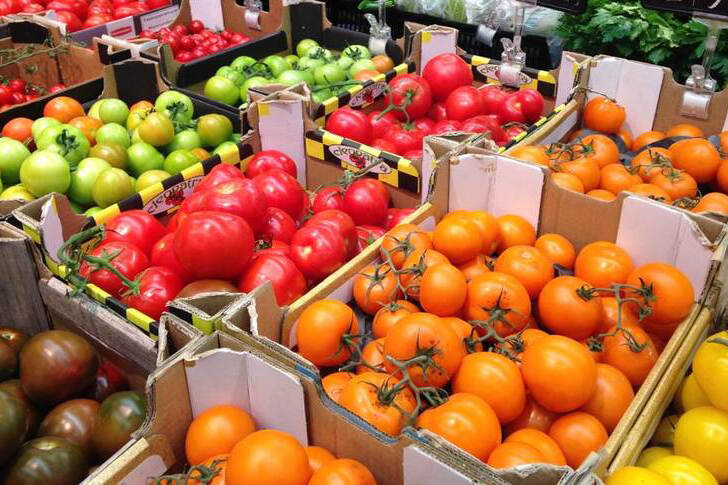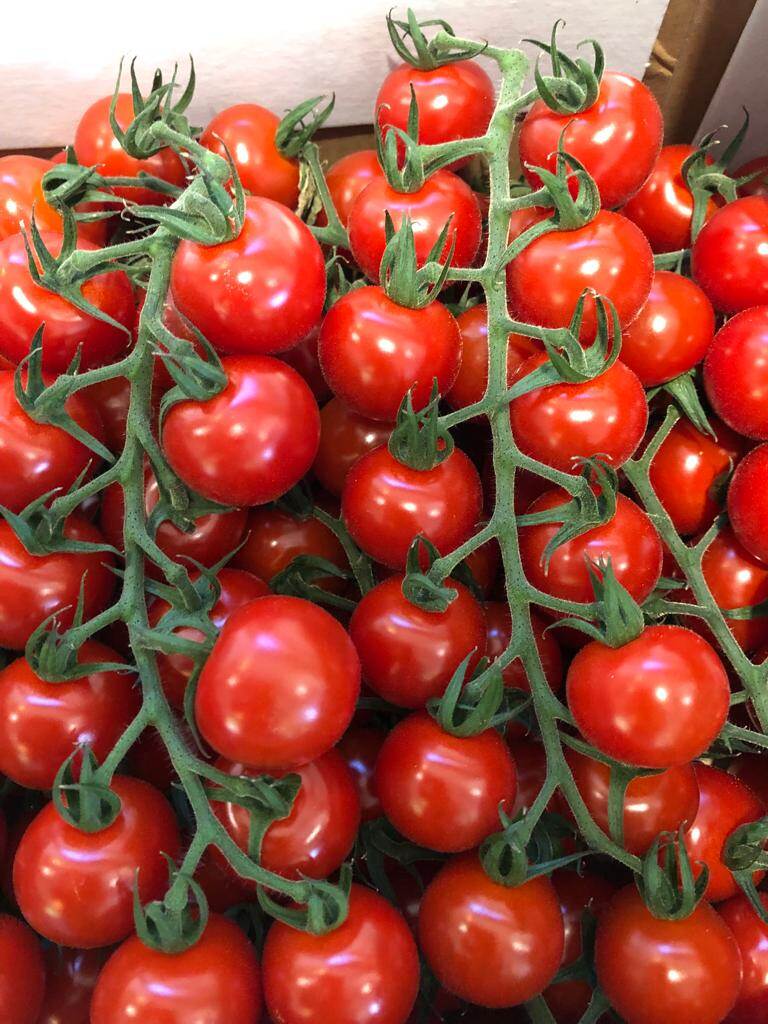Dutch agri-food export to the United Arab Emirates (UAE) & Saudi Arabia increased in 2021. The two countries make up the biggest market share of the Dutch export to the Gulf Region: together they account to 73,5% of the total export to the Gulf region. Zooming in on the trade growth shows that the character of the Dutch agri-food export is changing: from (end) products to technology and knowledge. Agri-food products still makes up 20,5% of the Dutch export to the broader Gulf Region.
This article will elaborate on how this development is aligned with national government agenda’s of the exporter (the Netherlands) as well as the buyers (Saudi Arabia and the UAE). Although worldwide the export of Dutch agriculture products still witnessed growth in 2021 (+9,4%), the new policy from the Dutch Ministry of Agriculture, Nature & Food Quality of stimulating production closer to the consumer is starting to be visible in the export to Saudi Arabia and the UAE.
This article also sheds light on economic patterns that are shifting within the region: mainly between the two allies Saudi Arabia and the UAE. Finally, Saudi Arabia and the UAE are strengthening its position on domestic and international markets by upscaling national production.

Dutch agri-food export to Saudi Arabia continues to grow
The Dutch agri-food export to Saudi Arabia increased with 13,2% to €644,4 million, which translates to an increase worth over €75 million. That growth is bigger than last year when the export to Saudi Arabia increased with 11,2%.
There are quite some product categories of which the export grew tremendously, such as: machinery for the preparation of animal feed (+1672%), fertilizers (+1326%), machinery for industrial food preparation (+251%), poultry incubators/breeders (+180%), hatching eggs (+170%), live animals (horses) (+65,2%), live plants (+53,2%), and cut flowers (+34,9%). Clearly Saudi Arabia’s new policy to produce more food locally, as part of Vision 2030, is becoming visible seeing the rise of the export of equipment and propagation material.
Besides that, a decrease in fresh vegetables and fruits exports from the Netherlands to Saudi Arabia (-16,4%) took place. This development is aligned with both the Netherlands’ and Saudi Arabia’s government policies. On the one hand the Saudi government aims to improve its food security by stimulating local production, for which machineries and knowledge is required. This explains the drop in export of fresh produce, as well as the surge in the export of agriculture & food industry machinery. On the other hand the Dutch policy has shifted from being one of the biggest exporters of agricultural products in the world, to focusing on the export of knowledge and technology. The role that the Netherlands nowadays aims to take up is to support countries in securing their domestic food production.

The amount of dairy that the Netherlands exports to Saudi Arabia has been increasing rapidly since the year 2018, and always makes up the biggest commodity if the Dutch agri-food export to the Kingdom. Besides dairy Saudi Arabia is a big market for Dutch hatching eggs.
The plant based food preparations that are exported to Saudi Arabia are mainly cooked frozen potatoes: which are used as fries for the horeca sector. Other food preparations mainly consists of the export of malt extract.
As mentioned before the export of agriculture & food machinery has increased drastically; especially machinery used for food preparation or manufacturing, and agriculture & horticulture equipment.
Although cacao clearly is not a Dutch product, the Netherlands is a big exporter of cacao and chocolate products. This has to do with the fact that the Netherlands has become one of world’s biggest importer of cacao beans over the years, due to the Port of Amsterdam being one of the global “cacao-clusters”. The majority is used domestically for the cacao processing industry, and the rest is being re-exported to other countries, which explains the big amounts of cacao and chocolate products being exported to the Gulf Region.
Dutch agri-food trade to the UAE recovered from the consequences of the pandemic
The agri-food export to the UAE was worth €577,8 million in 2021: an increase of 5%. That is an impressive growth, keeping in mind that in the prior year this export dropped with -9,6%. As the export in the years prior to that was growing continuously, this drop was directly linked to the consequences of the pandemic. In 2021 the UAE has restored its agri-food trade in line with the government’s Food Security Strategy 2051. Part of that strategy is to enable sustainable food production through the use of modern technologies, which explains the surge of all kinds of agriculture equipment from the Netherlands to the UAE.
Product categories within the agriculture & food sector that have been exported remarkably more in 2021 than the year before are for instance: equipment for the preparation of animal feed (+733%), harvesting machinery (+313%), chemical products (157%), poultry- keeping equipment and parts of poultry-related machinery (149%), equipment for the agriculture & horticulture sectors (+135%), animal & vegetable fats (+130%), meat (+40,7%), dairy (+31,7%), coffee (+31%), cut flowers (+28,9%), and live animals (+12,6%),

Shifting regional economic patterns: Saudi Arabia and the UAE
Regional patterns have started to shift in the field of economy. For the agri-food trade that started to become visible when in the year 2020 Saudi Arabia became the region’s biggest buyer of Dutch agri-food products. Up until that year UAE has always ranked highest. We saw not only that the agri-food export to the UAE decreased (-9,6%), but also that the agri-food export to Saudi Arabia increased significantly (+11,2%). (Source: Agroberichten Buitenland, Nederlandse landbouwexport naar Golfstaten nam toe in 2020 tijdens pandemie, 5 July 2021)
Saudi Arabia is working towards becoming the region’s biggest and most important international transport hub – a role that has always been fulfilled by friendly neighbor UAE. A couple of years after the launch of the Saudi Vision 2030, its implementation is visible in a broad variety of sectors: Saudi Arabia has witnessed and undergone societal changes, and numerous economic developments. The Saudi economy is being redesigned to become oil-independent on the long term.
In the recent years however the two neighbors have been competing in the field of international trade. The global pandemic stressed the need for individual countries to secure their food security situations. Part of that is that GCC countries have been investing heavily in land of third countries, with the purpose of securing crops that cannot be cultivated in the region’s arid climate. Besides that both Saudi Arabia and the UAE, in line with existing government visions, made major efforts to become less depending on imports. Saudi Arabia is urging international companies to establish their regional headquarters within the Kingdom, which often implies companies have to move their HQ away from the UAE. Big companies are lured into the move with appealing incentives through the Regional Headquarters Program. It is expected that in the coming years the pressure on those companies will increase, for example by making it impossible for them to partake in government-led projects, unless the concerned company’s headquarters are established in the Saudi Kingdom.
Both Saudi Arabia and the UAE are part of the Gulf Cooperation Council (GCC), a regional governance that unifies 6 Gulf countries on intergovernmental, political, and economic level. In practice this unified power mainly appears in matters such as politics and security. From economic perspective all countries may have overarching goals that are unified, but execute their individual policies. Although there has been some turmoil over the past years within the Council, all countries know the importance of maintaining their unified strength on a geopolitical level. Especially Saudi Arabia, home to the region’s biggest market and population, and the UAE, do their utmost best to uphold their friendship based on shared cultural and political ties.
Saudi Arabia is upscaling export of national products
The import of agri-food products from the Gulf Region to the Netherlands has significantly increased in 2021 with a total value of €95,2 million (+18%). Its worth mentioning that this amount seems to increase even more, as Q1 of the year 2022 already totals to €86,8 million, which by itself equals 90% of the total import of the whole previous year.
This regional increase is largely carried by the increased agri-food import from the Kingdom of Saudi Arabia to the Netherlands (+31,2% in 2021). This increase can be explained by Saudi Arabia’s aim to diversify its economy through the increase of export of national products. A prominent example of this is the rise of the import of Saudi dates with 56,3%. Although this fierce increase set off in 2020 already, the Saudi government launched the so-called Made in Saudi campaign in March 2021. This initiative led by the Saudi Export Development Authority is aimed at promoting national products, such as dates, on domestic and international markets.
—
The statistics in this article are based on the trade figures published by Wageningen Economic Research (LEI). The trade figures are extracted from the most recent statistics at the time of publishing the article, being up until 2022-Q1. This article has been published by the Agriculture & Food Department for the Gulf Region, at the Embassy of the Netherlands in Riyadh. For any inquiries please contact Sophie Hollanders at RIY-LNV@minbuza.nl


